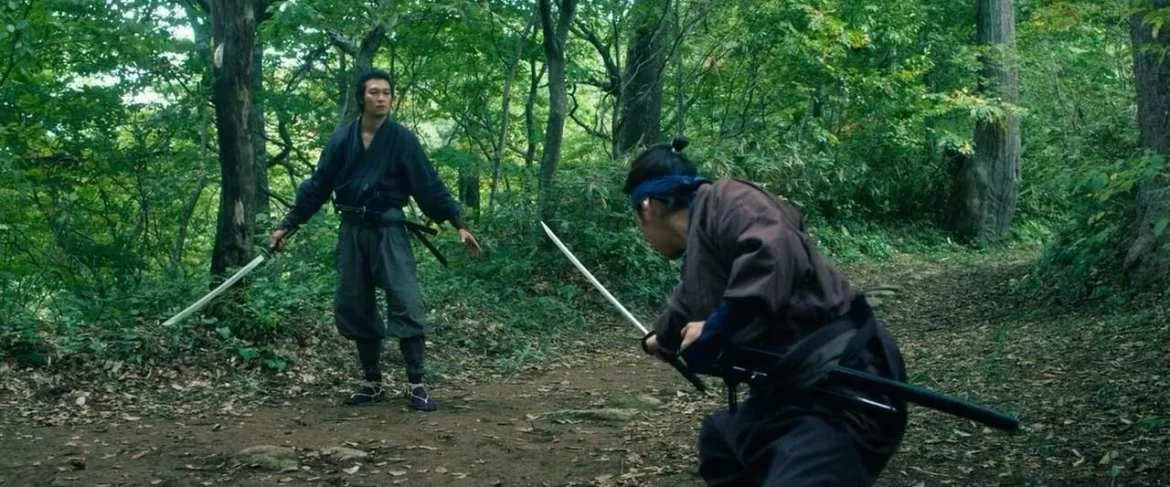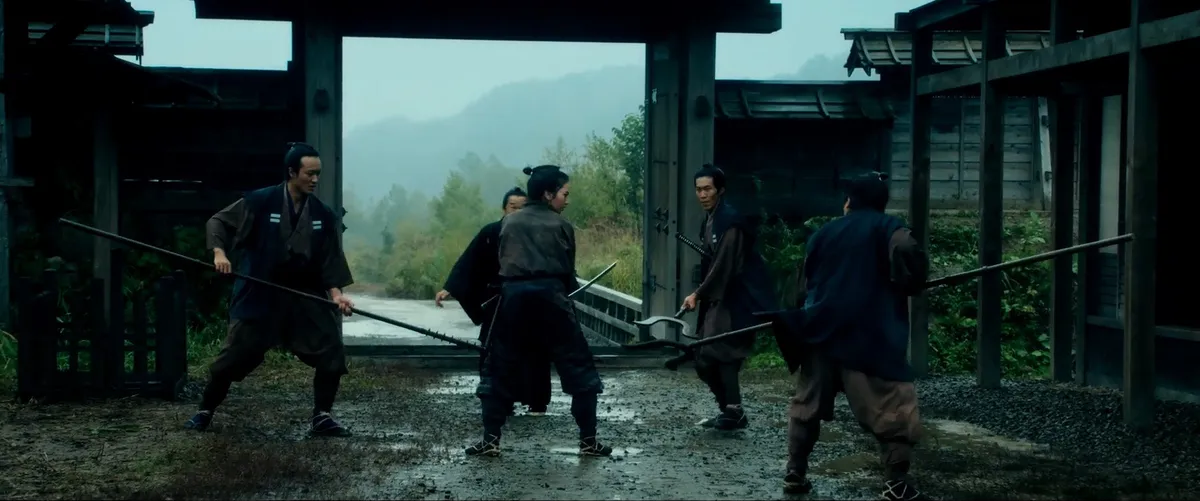Samurai Marathon is a solid and delightfully colourful historical movie based on true events.
In today's blog post, the focus will be a very interesting movie for various reasons. It's a Japanese historical drama, but it is helmed by acclaimed British director, Bernard Rose. Bernard Rose had previously been known for Candyman and Paperhouse amongst other credits. For his venture into Japanese moviemaking, he set his sights on adapting the Akihiro Dohi book, The Marathon Samurai: Five tales of Japan's first marathon. The book and subsequently the movie, were both based on the Ansei excursion. The Ansei excursion was a real, historical event, a samurai foot race back in 1855 and is considered to be the origin of the Japanese marathon.
The narrative of course takes place in 1855 and sees Commodore Perry enter Japan with his black ships. His attempts at communicating with Ioki Suketori fall flat as neither of the men can understand what the other person says. Perry's gifts at least establish some gesture of good will. Not everyone takes Perry's presence and gifts as good will however, chief among them being Itakura Katsuakira. As Itakura gathers his retainers, one of his men, Jinnai Karasawa, is actually an Edo spy and he swiftly sends a report via letter claiming that Itakura is rebelling against the shogunate. As it turns out, Karasawa's suspicions are proved false as Itakura simply arranges a foot race for his retainers. Horrified, Karasawa attempts to run after the courier and stop the letter from reaching Edo.
Samurai Marathon is all about misunderstandings. There's the misconceptions of Perry's intentions and concern about his presence as seen by Itakura's nightmare in which he murders Perry with one of the American guns. There's also the fact that he is so concerned for his daughter's safety that he refuses to allow her to travel, not just to the West, but even to Edo. Itakura himself can be seen as a stand-in for the samurai who wanted to remain in the old ways and would see Perry turn around and head back to America.
There's also the misunderstanding that Karasawa has with the marathon itself. He mistakes the race for a rebellion and thus ends up conflicted, between his role as an Edo spy and to his family and the people he wrongfully accused of starting a rebellion. This all comes to a head when the unfortunate spy is forced to take a stand and choose a side.
I think that Bernard Rose did a fantastic job directing Samurai Marathon. The direction definitely has a nuanced western approach, which it obviously would due to Rose being British and yet, it doesn't distract or take away from the narrative. His direction definitely brought the most out of the talented cast. He also understands tension and the narrative in Samurai Marathon gets tremendously tense. The cinematography is superb. It's a lot more static at times than I've become accustomed to and yet, it works really well. There's a neat blend of close-ups, mid range shots and wide angles that really make it easy to get hooked into the narrative. I especially appreciated the wide shots as they showcase the beautiful greenery and colourful Japanese landscape and architecture.
Props must also be given to the wardrobe department as the movie is full of glorious costumes and hairstyles. Combine this with the sublime sets and it's easy to get immersed in the narrative and swept up into the time period.
As expected with chanbara and samurai movies, there's a few sword fights. For the most part, the fight scenes are solid and framed so that the audience can have a clear understanding of what's happening. What stands out about the fight scenes and the movie in general is the fact that it doesn't shy away from gory decapitations. There's more than one head that rolls from the owners body. I do however, have to nitpick as I noticed something rather odd. In one of the first fights of the movie, Kawasawa suddenly loses his sword despite the fact that he had been holding it in the previous shot. There's no logical explanation for why it suddenly disappears as it isn't taken from him and isn't on the ground in the next shot.
Another minor gripe I have is in regards to the firearms used in the movie. The Colt Model P, commonly referred to as the Peacemaker is the revolver given to Suketori's men by Perry and yet, this couldn't have been possible. Since the movie is set in 1855, the Americans likely were using the Colt Navy 1851 revolvers which were 36 calibre percussion pistols and not gate-loaded.
Performance wise, everyone was solid across the board. Takeru Satoh was excellent in the role of Jinnai Kawasawa. He excelled at expressing the required regret and determination needed for the role as well as being adept at the fight scenes.
A stand out for me was Naoto Takenaka in the role of retired samurai, Mataemon Kurita. He brought a ton of grandfatherly charm to the role and offered some levity with light-hearted moments and even some comedy. His role as the mentor and trainer of samurai in training, Isuke is one of the best things about the movie. It's a touching story of an old man making sure that the son of his deceased friend is looked after.
Nana Komatsu was surprisingly fantastic in what was a very different role for her. She excelled in her fight scenes and conveyed her yearn for a life outside her father's domain really well.
Overall, Samurai Marathon is an unconventional and yet, narratively solid jidai-geki movie. I would recommend it to fans of the genre as it is a wonderful, unique experience and being based on a true event makes it better in my humble opinion.






Comments
Post a Comment
Please be respectful. It's ok to disagree and debate topics, but in a polite manner.